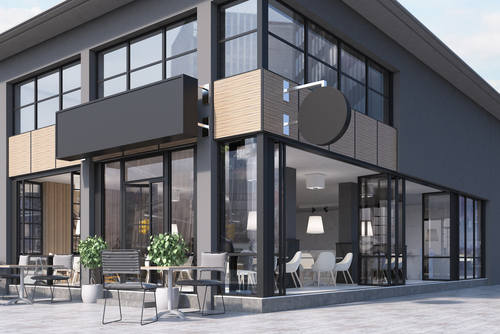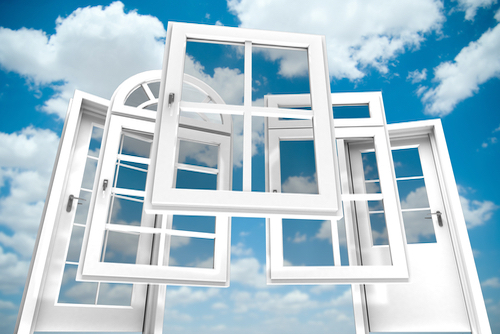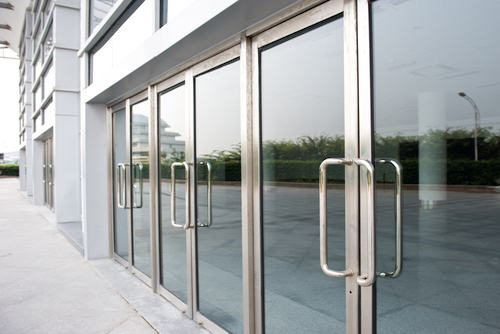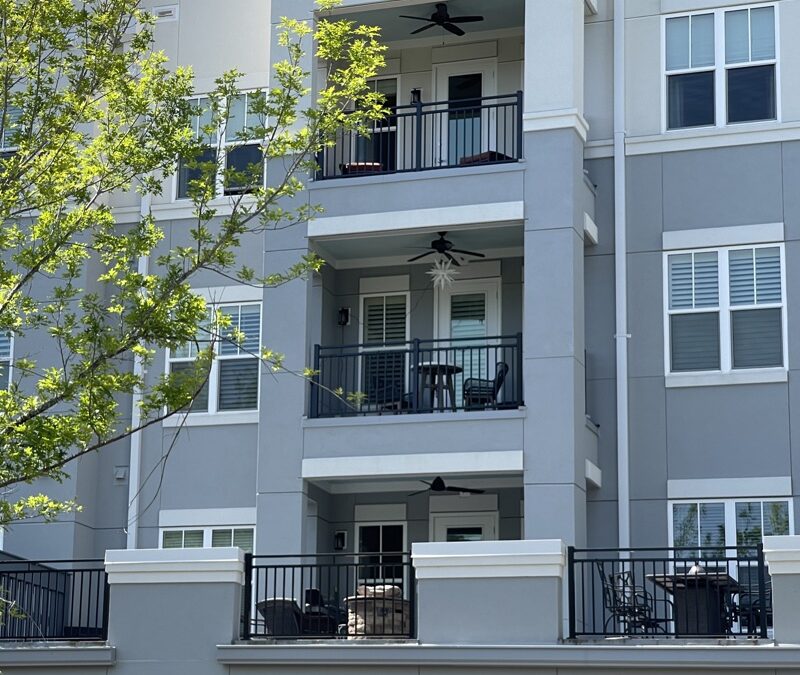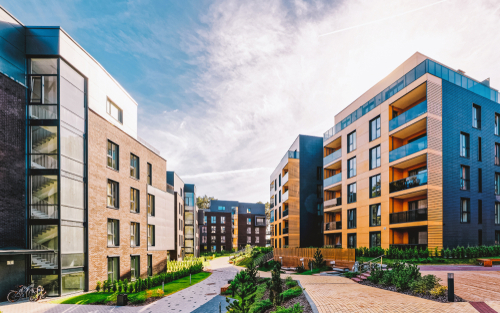In commercial spaces, windows and doors are more than mere structural elements—they play a pivotal role in aesthetics, functionality, energy efficiency, and security.
The installation of high-quality windows and doors in commercial buildings holds immense importance, influencing various aspects that contribute to the overall success and performance of the establishment. This article explores the multifaceted reasons why quality matters significantly in commercial window and door installations, elucidating the impact on businesses, occupants, and the building itself.
Commercial Window and Door Installations
Enhanced Aesthetics and Professionalism
The outward appearance of a commercial building serves as its first impression, conveying a sense of professionalism, credibility, and attention to detail.
High-quality windows and doors contribute significantly to the overall aesthetics, enhancing the building’s visual appeal.
Sleek, modern, well-maintained windows and doors elevate the curb appeal, attracting potential customers, tenants, or clients. They create an inviting atmosphere, setting a positive tone and reflecting the image and brand identity of the business within.
Functionality and Comfort
Functional windows and doors are essential for ensuring comfort in a commercial space. High-quality installations provide smooth operation, ease of use, and proper functionality.
Well-designed doors facilitate easy entry and exit for employees, customers, or visitors. Additionally, windows that open and close effortlessly allow for adequate ventilation and natural light, contributing to a comfortable and productive work environment.
Quality installations also help minimize drafts, noise intrusion, and air leakage, fostering a more pleasant indoor atmosphere.
Energy Efficiency and Cost Savings
Energy efficiency is critical for commercial buildings, impacting operational costs and environmental sustainability.
High-quality windows and doors equipped with advanced insulation materials, efficient seals, and glazing technologies play a pivotal role in regulating indoor temperatures.
They help reduce heat transfer, prevent energy loss during extreme weather conditions, and optimize heating and cooling expenses. Over time, energy-efficient installations lead to substantial cost savings on utility bills while reducing the building’s carbon footprint.
Enhanced Security and Safety
Maintaining a secure environment within a commercial establishment is paramount. Quality windows and doors are integral components of a building’s security infrastructure.
They have robust locking mechanisms, durable materials, and impact-resistant features, bolstering the building’s defenses against unauthorized access, break-ins, or vandalism.
Additionally, high-quality installations adhere to safety standards, ensuring that doors and windows meet regulatory requirements for emergency exits, fire safety, and accessibility, thereby prioritizing the safety of occupants.
Longevity and Durability
Investing in high-quality windows and doors translates to enhanced durability and longevity.
Superior materials and expert installations contribute to the longevity of these components, reducing the need for frequent repairs or replacements.
Quality installations are designed to withstand the rigors of weather, wear and tear, and daily usage, maintaining their structural integrity and functionality over an extended period. This longevity ultimately saves costs by minimizing maintenance expenses and replacement frequency.
Compliance and Building Standards
Commercial buildings must adhere to various building codes, regulations, and industry standards. High-quality window and door installations comply with these standards, ensuring the building meets legal requirements for safety, accessibility, and environmental considerations.
Compliance with these standards ensures the establishment’s legality and enhances its market value and reputation.
Enhanced Property Value and Marketability
The quality of windows and doors significantly influences commercial properties’ overall value and marketability.
Well-maintained, high-quality installations contribute to a building’s perceived value, attracting potential buyers, investors, or lessees. Properties equipped with top-notch windows and doors often command higher resale or rental values in the market.
Additionally, they facilitate a competitive edge in a crowded real estate landscape by making the property more appealing to prospective occupants or investors.
How Do We Test Window Quality?
Testing window quality is crucial to ensure the installed windows meet the required performance, durability, and efficiency standards.
Here’s a comprehensive guide on how to test window quality:
1. Visual Inspection:
Begin by visually inspecting the windows for any visible defects or imperfections. Check for cracks, warping, or discoloration in the frame and glass. Aesthetically pleasing windows contribute to the overall appeal of the commercial space.
2. Frame Material Assessment:
Examine the material of the window frame. Different materials like vinyl, aluminum, or wood have varying durability and maintenance requirements. Assess whether the frame material aligns with the desired longevity and aesthetic preferences.
3. Operation and Functionality:
Test the ease of operation for both windows and doors. They should open and close smoothly without any resistance. Check the locking mechanisms to ensure they function securely, contributing to the overall security of the commercial space.
4. Energy Efficiency Measures:
Evaluate the energy efficiency of the windows. Look for features like double or triple glazing, low emissivity coatings, and gas fills between panes. These elements regulate indoor temperatures, reduce energy consumption, and enhance comfort.
5. Insulation Properties:
Assess the insulation properties of the windows by checking for drafts. Poorly insulated windows can lead to heat loss or gain, affecting energy efficiency. Quality installations should provide effective insulation to maintain a comfortable indoor environment.
6. Sound Transmission:
Consider the impact of the windows on sound transmission. High-quality windows with proper seals can minimize external noise, creating a more peaceful and productive commercial environment.
7. Water Resistance:
Test the windows for water resistance. This involves checking for leaks, especially during heavy rain or when subjected to water pressure. Effective water resistance is crucial to prevent water damage and maintain the integrity of the building structure.
8. UV Resistance:
Examine the windows for UV resistance. Quality windows should have coatings that protect against ultraviolet rays, preventing furniture and flooring from fading over time. This feature contributes to maintaining the interior aesthetics of the commercial space.
9. Impact Resistance:
Evaluate the windows for impact resistance, especially in areas prone to severe weather conditions. Impact-resistant glass and durable frames enhance the safety and security of the building, protecting occupants from potential hazards.
10. Professional Certification:
Check whether the windows carry industry certifications from reputable organizations. Certifications such as ENERGY STAR or those from local building authorities validate that the windows meet specific quality and efficiency standards.
11. Warranty and Manufacturer Reputation:
Consider the warranty offered by the window manufacturer. A substantial warranty period indicates confidence in the product’s durability. Additionally, research the manufacturer’s reputation to ensure a history of producing high-quality, reliable windows.
How Do You Determine the Quality of a Door?
1. Material Composition:
Consider the material used for the door. Different materials, such as wood, steel, fiberglass, or composite, offer varying durability, security, and maintenance requirements. Evaluate whether the chosen material aligns with the commercial space’s intended use and aesthetic preferences.
2. Design and Style:
Assess the design and style of the door and the overall architecture and aesthetic of the commercial building. A well-designed door not only enhances the visual appeal but also contributes to the professional image of the establishment.
3. Security Features:
Evaluate the security features of the door. Look for robust locking mechanisms, sturdy hinges, and reinforced frames. A high-quality door should provide a secure barrier against unauthorized access, contributing to the safety of the occupants and property.
4. Weather Resistance:
Check the door for weather resistance. Doors exposed to the external environment should be capable of withstanding weather conditions without deteriorating. This includes resistance to moisture, extreme temperatures, and potential warping.
5. Maintenance Requirements:
Consider the maintenance needs of the door. Different materials and finishes have varying maintenance requirements. Choose a door that aligns with the available resources for upkeep and maintenance, ensuring longevity.
6. Insulation Properties:
Evaluate the insulation properties of the door. An insulated door contributes to energy efficiency by preventing heat transfer. This is especially important for doors leading to conditioned spaces, helping to regulate indoor temperatures and reduce energy costs.
7. Sound Insulation:
Assess the door’s ability to insulate against sound. Doors with proper seals and insulation materials create a quieter indoor environment, enhancing the comfort and productivity of the commercial space.
8. Finish and Coating:
Examine the finish and coating of the door. Quality finishes contribute to the overall aesthetics and provide protection against elements, ensuring the door maintains its appearance over time.
9. Accessibility Compliance:
Check whether the door complies with accessibility standards, primarily if it is intended for public or commercial use. Accessibility features such as width, handles, and thresholds should adhere to regulations to accommodate all users.
10. Manufacturer Reputation:
Research the reputation of the door manufacturer. A reputable manufacturer with a history of producing high-quality doors is likelier to deliver a product that meets or exceeds industry standards.
11. Warranty Coverage:
Consider the warranty offered with the door. A comprehensive warranty reflects the manufacturer’s confidence in the quality and durability of its product. This can be essential in ensuring long-term satisfaction and protection against defects.
By carefully evaluating these factors, commercial property owners can make informed decisions when selecting doors that align with their needs.
Conclusion
In conclusion, installing high-quality windows and doors in commercial buildings holds profound significance, impacting aesthetics, functionality, energy efficiency, security, and overall value. Investing in superior installations offers many benefits, from enhancing the building’s appearance and functionality to ensuring energy savings, compliance with regulations, and bolstering security measures.
Business owners, property managers, and architects must prioritize quality when considering window and door installations, recognizing their pivotal role in the success and performance of commercial spaces. By selecting top-tier materials, engaging skilled professionals for installation, and adhering to industry standards, commercial establishments can reap the rewards of quality installations that offer durability, efficiency, and a positive impact on occupants and the environment.

